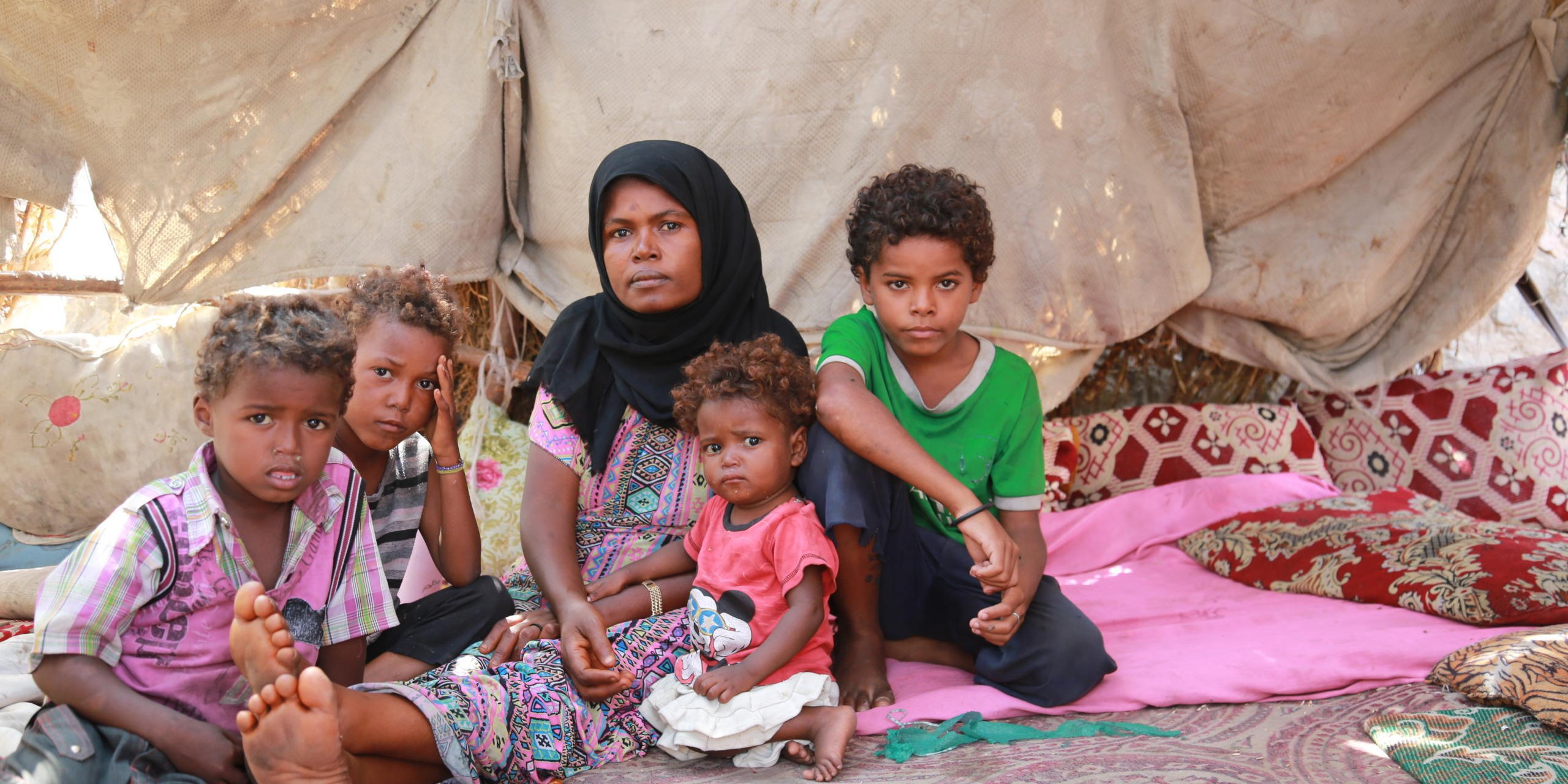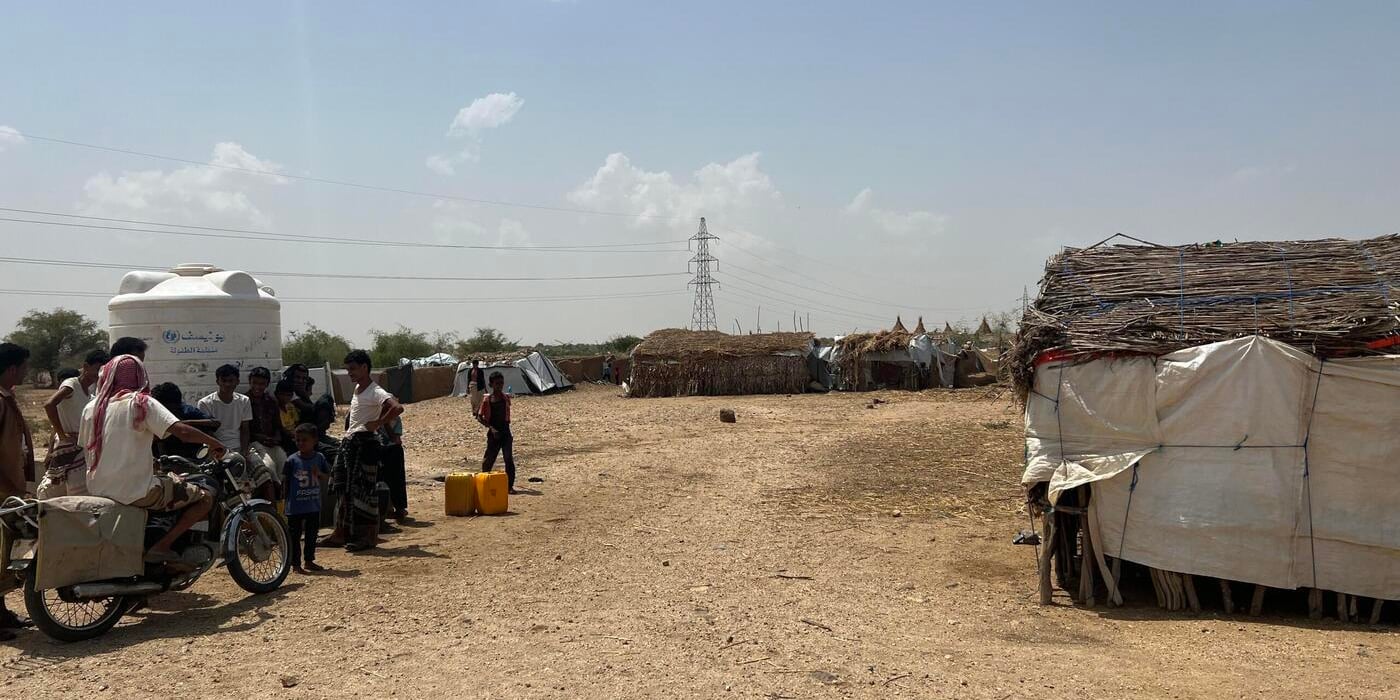
“The senceless war represents a collapse in international diplomacy. The UN was established to prevent suffering of the kind we are now witnessing, but cannot serve its mandate as long as it is at the mercy of member states with diverging interests and priorities that actively prevent peace,” he said.
While world leaders meet at the UN General Assembly in New York, more than 27 million Yemenis await meaningful action to restore peace and security to their country. Violence, hunger and preventable diseases continue to claim Yemeni lives at an alarming rate in the war torn nation. As many as 1.2 million public servants have not received their regular salaries for more than a year, leaving their seven million dependents without enough money for food, medicine and transport. Close to 15 million can no longer access safe water or basic health care, and more than 700,000 suspected cases of cholera have been registered since late April, more than five times the number of cases recorded globally in 2016.
“The collapsed public sector and overwhelming humanitarian needs are direct and deliberate effects of war, adding to the destruction caused by bullets and bombs,” Egeland said. “World leaders have a responsibility to push for an end to Yemen’s conflict and the needless suffering it is causing.”
“Tell your people, tell everyone, that we need help. But the most important thing is that you help stop war. We want to go home, we want to continue our lives. At home, we never needed anything from anyone,” said Amer, a family father from Nehem, close to the capital in Yemen.
Amer has been displaced to Sana’a along with remaining family members. The war has taken the lives of his daughter, both of his parents and a sister, in addition to destroying his home and his income.
“The longer this war is allowed to go on, the more difficult it becomes to find a way back to durable peace and reconciliation. Yemeni people are more than just statistics. They need an end to the war and they need world leaders to find an inclusive, just and sustainable way to make it happen,” Egeland said.
Yemen’s Crisis in Numbers:
Needs overview:
- Total population: 27.4 million
- Population in need: 20.7 million (an increase of 2 million or 10% since 2016)
- Acute need: 9.8 million
- Funding needed for 2017: USD 2.3 billion. As of today, Yemen’s Humanitarian Response Plan is only 44,5% funded.
Displacement:
- Total: More than 3.1 million Yemeni people, have been displaced by violence since March 2015, including 188,000 who have crossed borders into neighbouring countries and the Horn of Africa.
- Current: 2 million people remain internally displaced across 21 of Yemen’s 22 governorates
- Duration: more than 80% remain displaced for more than a year.
- Potential increase: Spreading conflict in the west may displace up to 500,000 more.
Food security/Famine:
- Total food insecure: 17.1 million, 60% of population
- Acute malnutrition: 4 Governorates have malnutrition rates above ‘emergency’ thresholds and 7 exceed ‘serious’ threshold. 462,000 children suffer from Severe Acute Malnutrition.
- At risk of famine: almost 7 million (IPC phase 4)
- Increased risk: food insecure population has increased by 20% since June 2016
Health, Water and Sanitation:
- Cholera: 704,544 suspected cases and 2,103 fatalities, of which more than 30% people over 60 years
- Water: 14.5 million people lack access to safe drinking water and sanitation
- Infrastructure: Only 45% of health facilities are functional
- Medicine: Only 30% of required medical supplies are entering the country, only 45% of Yemen’s health facilities still functioning
Economy/Livelihoods:
- Economy: Yemen’s GDP has contracted by 40% since 2015
- Income: 80% of household report a worse economic situation than before the crisis
- Livelihoods: 70% of Yemeni enterprises no longer function
Violence:
- Airstrikes: 5,676 airstrikes in the first half of 2017 – an average of 946 each month – three times the average number from 2016
- Armed clashes: 2,811 during the first half of 2017
- Casualties: 56,130 reported to health facilities since March 2015, including 8,389 fatalities. (These numbers are likely much higher as they depend on data gathered from health facilities in a country where only half of such facilities are functioning).
NRC in Yemen:
- NRC delivers programs in food security, shelter, education, and water, sanitation and hygiene across eight of Yemen’s 22 governorates.
- NRC reached more than 1.2 million Yemeni people with lifesaving assistance during 2016 and will extend to close to one million this year. Wherever possible, we seek to integrate programs so that people in need have access to information, resources and services that ensure survival, protection and dignity.
- Our programmes promote safety and protection for displacement-affected communities and are accountable to the people with whom we work.


